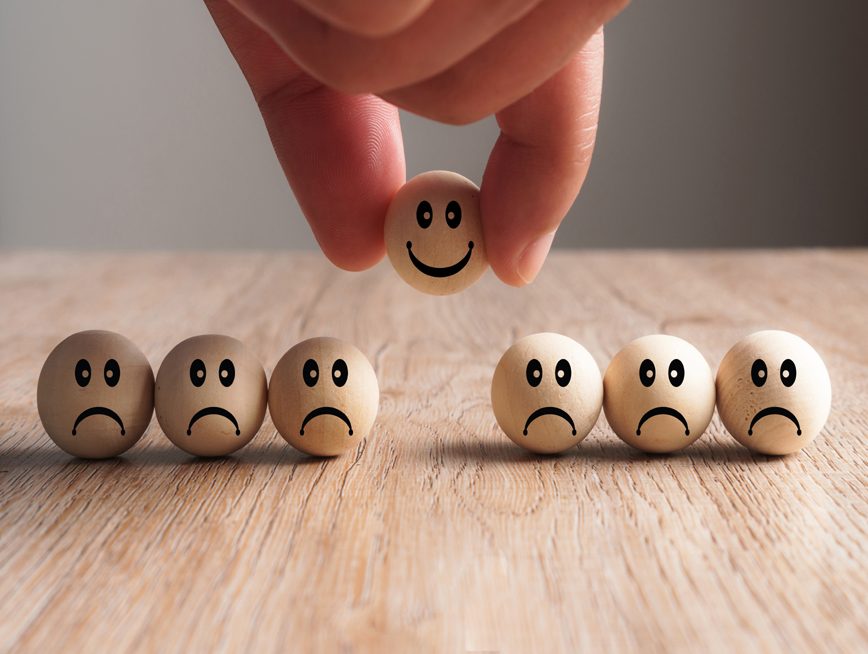Well-being Links
The World of Stress
Stress became a part of our daily vocabulary when the Canadian doctor Hans Selye in 1920 noticed after his medical training that many of his patients all had one common characteristic: physical stress due to an illness. Since 1920 all areas of stress have undergone extensive research to better understand how the human body produces stress hormones and responds to stress not only during illness and disease, but also in daily life and work activities. As a result, we now recognize that stress is both a psychological and physical consequence by way of our behaviors, thoughts and emotions in all activities and stages of life.
It's not stress that kills us, it is our reaction to it.
Hans Selye
First of all, the physical aspect of stress includes many elements of the biological activities of numerous human body organs and glands, hormones, and certain parts of the brain (the three brains if you will: the gut brain, the heart brain, and the head brain). The stress hormones adrenaline and cortisol for example are a major focus in healthcare today on how our human body reacts to internal and external signals from life events that elevates our coritsol levels which then activates our adrenaline to resolve the distressed state. If that distressed state is not resolved, our cortisol levels remain elevated (among other things), and our physical and emotional status becomes exhausted with the risk for physical and psychological illnesses moderate to high.
Subsequently, stress that remained elevated (e.g. high levels of cortisol) has historically been classified as either acute stress or chronic stress. Not all acute stress episodes become chronic stress, but if the individual is already living an unhealthy lifestyle and that person has little knowledge of stress management micro-skills, the risk for physical and psychological illness is high regardless of the acute and/or chronic stress state. The World Health Organization (WHO) and other internationally recognized research, universities, healthcare, and medical organizations agree that over 75% of medical conditions arise from stress. Consequently, stress management programs are available for those suffering with stress and its associated medical-psychological ailments. These treatments include medication, exercise, diet change, counselling, sleep hygiene, and an overall lifestyle change.
At the Centre for Stress Management (CSM) we believe that stress management programs should be focused on both prevention and treatment of the various types of stress and its consequences. Our counselling services are not only for those who are experiencing unhealthy stress, we are also a counselling centre for those who care to learn how to prevent unhealthy stress, control stress when it is occurring, and improve their lifestyle and habits so the risk for unhealthy stress and illness is greatly reduced. Furthermore, Dr. Mark's 40 years of combined wellness and psychological research and treatment of stress has a broader view of stress than just acute stress and or chronic stress. We also see stress from a continuum perspective, with one end of the stress spectrum being boredom stress and at the other end of the stress continuum being what we call performance stress.
Embedded in this continuum of stress model at Centre for Stress Management, we have developed an 360 degree assessment model to clearly understand the triggers of stress so we can assess the current stress as either mild, moderate or severe instead of simply acute or chronic. In other words, there are some types of acute and chronic stress that are "mild and normal" that require one type of counselling whereas acute and chronic stress that is moderate or severe usually requires a more advanced counselling program. This dynamic, comprehensive stress management model allows us to have a more precise stress management assessment and counselling program that addresses the cause of the stress as well as the consequences or symptoms of stress, and defines a series of well-being behaviors and healthy habits to regain and sustain wellness.
The Triggers of Unhealthy Stress
We provide a psycho-educational type of counselling setting to empower our clients to better understand the triggers of stress, as science reminds us we cannot get rid of stress (healthy and unhealthy type), but we can certainly learn how to prevent, reduce and manage the unhealthy stress with several key cognitive and behavioral tools. Our stress management program is NOT a one size fits all, but instead, it is carefully tailored around each client's medical baseline, genetic predispositions with healthcare issues, current healthy and unhealthy habits/patterns, and subsequently a client-focused set of well-being goals (lifestyle) to allow each and every client a greater chance to wellness. In other words, we do not treat the symptom or solely focus on the diagnosis, instead, we work with the client and focus on his or her cause(s) or triggers of stress and provide insight to our clients how these triggers set off their unhealthy stress. In short, what we call knowing your unhealthy patterns to learn new healthy habits.
Our Trigger Assessment Model developed by Dr. Mark comes from his 40 years of training and practicing evidence-based psychology and lifestyle medicine that is presented with each client in an easy to understand, believable and actionable well-being program. The common areas we explore in counselling is how a person in the current and past life experiences have reacted to: unexpected major life events, major life changes, the environment (yes we look at how noise, space and air pollution impact our clients), workplace stressors, parenting stressors, sexuality stressors, social relationship stressors, digital - technology stressors, food and drink stressors, adaptability strengths and a few others. Centre for Stress Management's Trigger Assessment Model also educates our clients on the continuum model of stress so they are more mindful which stress level has been activated, boredom stress and performance stress, to apply the proper micro-skills for stress management.
Boredom Stress
In today's highly digital and device continuous connection, amusement and gratification world, the risk for boredom in school, work and our personal lives have greatly increased. At Centre for Stress Management we understand that low, moderate and/or high levels of boredom have a direct impact on our stress, happiness and health states. Boredom stress is often times mis-diagnosed as ADHD, generalized anxiety, depression, reclusive or shy personalities, school avoidance behaviors, poor work performance and relationship conflict. We also understand that boredom stress can cause stagnation (acute boredom) and lack of inspiration (chronic boredom) that impacts learning, developing knowledge and improving life skills required for our well-being.
Our counselling programs for boredom stress is focused on helping our clients better understand their habits and behaviors with boredom, what we call "checking-out habits," that can cause procrastination, poor prioritizing behaviors, and distractions from their daily tasks that can develop greater obstacles when they need to re-attend to a task as required by an employer, school or personal relationship.
Performance Stress
The desire to be successful in school, work and our personal lives begins as early as the age of three years old and has now been identified as one of the leading causes for many physical and psychological healthcare issues. The desire to succeed is a basic human behavior, but when it is comingled with peer and parent pressure, high expectations from employers and clients, status anxiety, the fear of failure, and lack of recognition, the stress levels rise dramatically for most of us that can cause numerous physical and psychological negative consequences. At Centre for Stress Management we strive to bring insight to our clients on how to manage their performance stress in a positive way that actually enhances, not decreases, work and personal life productivity and achievement.
Our counselling programs for performance stress is focused on empowering our clients with a greater insight on how they manage their time, their energy, and their mindset with performance demands that appear with life's demands, what we call "freaking-out habits," that cause unhealthy behavioral and cognitive habits which leads to acute and long-term negative consequences to their well-being. In short, naming the stress tames that stress.

Relationship Stress
We provide counselling for dating, friendship, partnership, family, marriage and work relationship stress. We sadly spend more time and money learning how to drive a car versus how to go from being single to being in a lifetime partnership. Clients can be seen alone, in a couple or family setting.
Detail
Work Stress
Our stress management programs are the most advanced for work related stress. We spend more of our waking hours at work than at home, yet little is invested in employee health to keep the employees productive and well. See how we can improve your work performance for a work - life harmony.
Detail
Lifestyle Stress
We provide evidence-based, current, effective and realistic tools for sleep, food, substance use and exercise stress issues. Our wellness lifestyle programs come from some of the most evidence-based research world renowned universities and healthcare organizations. We do not teach fads, only real science.
Detail7 Minute Mindfulness Practice To Reduce Stress
Meditation and mindfulness have been around much longer than the recent celebrations psychology and mental health experts propose as a new way to deal with stress.
Harvard Research on Mindfulness and Reducing Depression
When our minds wander into the unknown about the future (anxiety provoking) or drift back into the past and play over and over an unpleasant event (ruminating), our mood states can go down causing anxiety and depression.